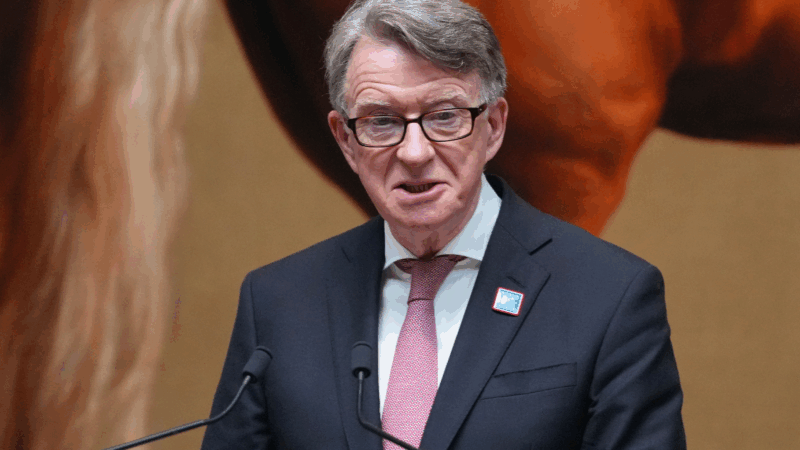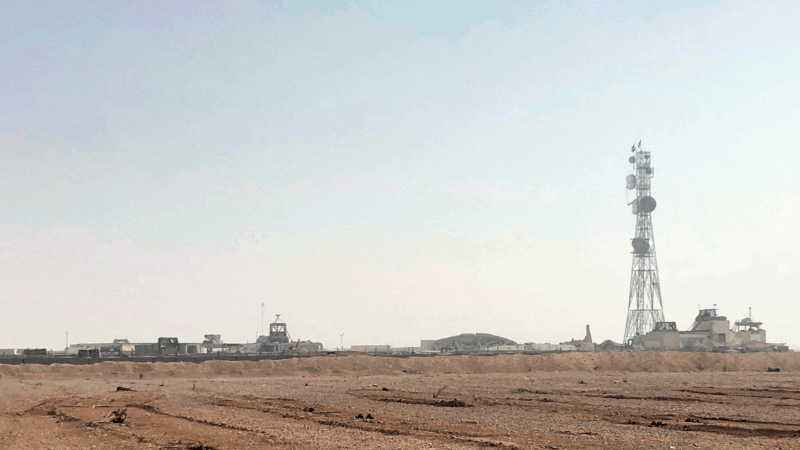Hunger Hits A New Target
Alabama has long struggled with poverty, inequality and hunger. Last year it was the second hungriest state in the nation. In the wake of the recession, some who might have thought themselves safe from the struggle to survive are feeling the pressure, as WBHM intern Nathan Reveley reports.
Betsy Pate and her boyfriend Andre Natta stand in their small kitchen sweating through the heat of an Alabama summer night. As Natta chops squash and onions and Pate makes salad, they open the window to try to get a breeze through the sweltering kitchen. The main course, part of a Boston butt, is a gift from a friend. As the veggies go into the frying pan, Pate reflects on the embarrassment that comes with having to accept charity.
“It is hard. You definitely have to swallow your pride and that’s something that’s hard for me to do. And just learning to accept the help with a smile and be very gracious about it and realize that the people that are trying to help aren’t trying to hold it over your head.”

Pate and Natta live together in Birmingham’s historic Norwood neighborhood. Pate has a graduate degree in architectural history and Natta has a Bachelor’s degree in the same field. He spends his time creating content and trying to generate revenue for his local news website. Since Pate lost her job in January, they’ve been struggling to make do with no income as Pate tries to find another job. One challenge is the high cost and distance to healthy food. David Buys is a medical sociologist at the University of Alabama in Birmingham.
“Certainly. There are foods that are available, but they’re not always accessible.”
Especially in poor communities. There are more than 9 million acres of farmland in Alabama. Still, more than 88,000 people in the Birmingham-Metro area live on blocks where it’s not easy to get to a grocery store. That accessibility problem has led to Alabama being the second most obese state in the nation. Kristina Scott is executive director of the nonprofit organization Alabama Poverty Project. She says lack of access to healthy food and unhealthy habits can lead to a dangerous cycle.
“There’s kind of the feast or famine mode at the beginning of the month when they get their food stamp benefits or right after payday they’ll eat a lot. Then through the month they’ll cut back on what they eat.”
And while food banks and community kitchens can help, Scott says it’s not enough.
“We’re not going to food-bank our way out of the hunger problem in Alabama. That’s simply not a solution. We’re one of the most generous states in the nation, but we’re also one of the poorest and it’s just not a solution.
Alabama is the 6th poorest state in the nation. Nearly 18% percent of residents live below the federal poverty line, which for family of four is $22,000 a year. The recent recession has made things worse. Samford University Economist Sara Helms says although a college degree is still the best way to avoid unemployment, it’s not a guarantee.
“They’re less likely to be unemployed than those with say a high-school degree. However, the duration of unemployment and the sectors that were affected means that it’s much more far-reaching because this recession has been much more far-reaching and deep than past ones that we’ve seen in recent history.”
In a period when even an advanced college degree like Betsy Pate’s is not a perfect safeguard, it’s scary to think that hunger could be one pink-slip away.
~ Nathan Reveley, September 8, 2011
Epstein files fallout takes down elite figures in Europe, while U.S. reckoning is muted
Unlike in Europe, officials in the U.S. with ties to Epstein have largely held their positions of power.
Four people on NASA’S Crew-12 arrive at the International Space Station
The crew will spend the next eight months conducting experiments to prepare for human exploration beyond Earth's orbit.
American speedskater Jordan Stolz wins second Olympic gold with 500-meter race victory
With the win, Stolz joins Eric Heiden as the only skaters to take gold in both the 500 and 1,000 at the same Olympics.
US military reports a series of airstrikes against Islamic State targets in Syria
The U.S. military says the strikes were carried out in retaliation of the December ambush that killed two U.S. soldiers and one American civilian interpreter.
5 European nations say Alexei Navalny was poisoned and blame the Kremlin
In a joint statement, the foreign ministries of the U.K., France, Germany, Sweden and the Netherlands say Navalny was poisoned by Russia with a lethal toxin derived from the skin of poison dart frogs.
It’s a dangerous complication of pregnancy — but a new drug holds promise
Researchers celebrate early results of a drug that may become the first treatment for a serious complication of pregnancy called preeclampsia. It's got the potential to save many lives.






